Interdisciplinary Conference
TABOO - TRANSGRESSION - TRANSCENDENCE
in Art & Science
26-28 November 2020, University of Applied Arts Vienna/Online
Scientific & Artistic Committee
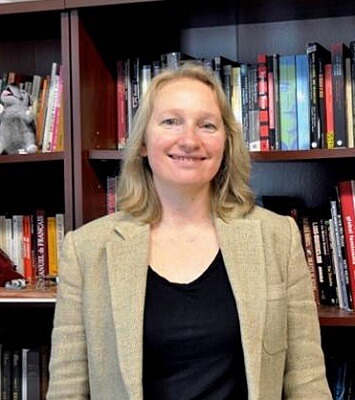
Irina Aristarkhova is Associate Professor of Art & Design, Women's Studies and History of Art at the University of Michigan. She writes on and lectures in comparative feminist theory and contemporary aesthetics. She has held faculty positions at the Pennsylvania State University (University Park), National University of Singapore (where she directed Cyberarts Research Initiative, 2001-2005), and Lasalle College of the Arts. Aristarkhova’s book Hospitality of the Matrix: Philosophy, Biomedicine, and Culture (2012) is available from Columbia University Press. Ana Prvacki collaborated with Irina Aristarkhova on an art book in 2011. Their "100 Notes – 100 Thoughts No. 043: The Greeting Committee Reports..." is part of Documenta 13 publication series, and can be ordered from Hatje Cantz Verlag. Aristarkhova studied philosophy and sociology at Moscow State University, and did her Master’s Degree at the University of Warwick, UK. She completed her PhD in Contemporary French Psychoanalytic Theory at the Institute of Sociology, Russian Academy of Sciences. She edited and contributed to a volume "Woman Does Not Exist: Contemporary Studies of Sexual Difference" (1999), and the Russian translation of Luce Irigaray’s "An Ethics of Sexual Difference" (2005).
USA
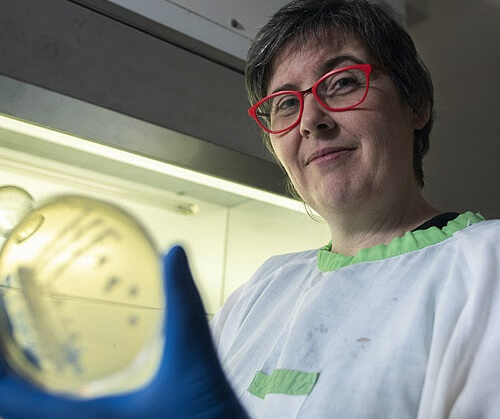
Tarsh Bates is an artist/researcher interested in the aesthetics of interspecies relationships and the human as a queer ecology. She has a PhD in Biological Art and is an Honorary Research Fellow at SymbioticA, UWA. She has worked variously as a pizza delivery driver, a fruit and vegetable stacker, a toilet paper packer, a researcher in compost science and waste management, a honeybee ejaculator, an art gallery invigilator, a raspberry picker, a lecturer/tutor in art/science, art history, gender & technology, posthumanism, counter realism, internet studies, and popular culture, an editor, a bookkeeper, a car detailer, and a life drawing model. She is particularly enamoured with Candida albicans.
Photo credits: Still from Biogenesis, Ep5, dir. Steven Alyian (2019), Australian Broadcasting Corporation (ABC)
Australia
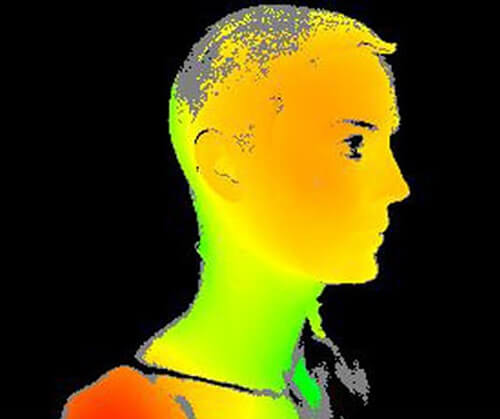
Sonja Bäumel studied Fashion Design at the Fashion Institute of Vienna, and holds a Bachelor in Arts from the University of Arts of Linz, as well as a Master in Conceptual Design in Context from the Design Academy Eindhoven. She is heading the Jewellery-Linking Bodies Department at the Gerrit Rietveld Academie in Amsterdam. Her interest lies in the microbial layer, a second layer that can be found on top of all bodies; an in-between layer, full of life, which serves as a fluid layer for exchange. In 2012 she was awarded with the Outstanding Artist Award Experimental Design, for the project Textile Anatomy, from the BMUKK Federal Ministry for Education, Art and Culture of Vienna. Her work has been exhibited internationally in Ars Electronica Center(AT), Anthology Film Archives New York (USA); MAK Museum of Applied Arts(AT); Museum of Contemporary Art Taipei (TW), Museum of Natural History Vienna(AT) or ZKM Center for Art and Media(DE) or Centre Pompidou Paris (FR). Her Textured Self project is in the permanent collection of the Textielmuseum in Tilburg in the Netherlands. Her works have also been the basic impact for documentary films (ORF/ARTE: BioArt - Kunst aus dem Labor; Servus TV_Terra Mater: Wir sind Planeten) to which she actively contributed. She is co-founder of the Dunbar's Number collective (2011), member of Pavillion35 (2012) collective based in Vienna, and of the WNDRLUST (2013-2018) collective based in Amsterdam.
The Netherlands
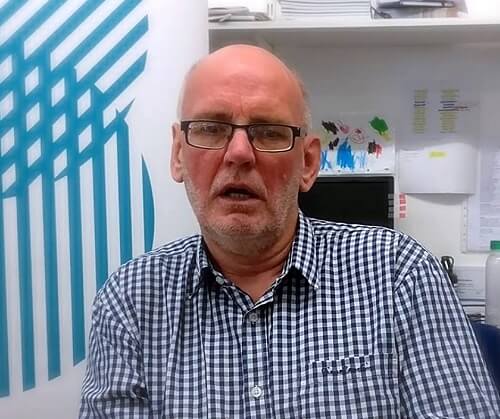
Andrew Carnie is an artist and academic. He is currently part of the teaching team in Fine Arts, and a member of the Critical Practices Research at Winchester School of Art, University of Southampton, England. He studied chemistry and painting at Warren Wilson College, North Carolina, then zoology and psychology at Durham University, before starting and finishing a degree in Fine Art at Goldsmiths College, London. Andrew then completed his Masters degree in the Painting School, at the Royal College of Art. He has continued as a practising artist ever since. In 2003 he was the Picker Fellow at Kingston University. His work has been exhibited at the Science Museum, London, Natural History Museum, Rotterdam, Design Museum, Zurich, Exit Art, in New York, Williams College Museum of Art, Williamstown, Great North Museum, Newcastle, Pera Museum, Istanbul, Dresden Hygiene Museum, Morevska Gallery, Brno, and the Daejeon Museum of Art, South Korea, the WAAG, Amsterdam, Holland, and at KKW in Leipzig, Germany amongst many others.
Personal Website: https://www.andrewcarnie.uk/
UK
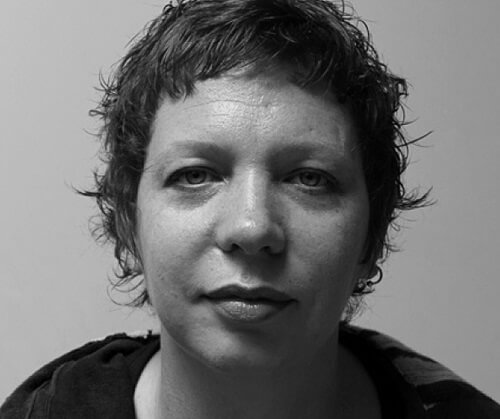
Petra Gemeinboeck is an artist and researcher, working across creative robotics, performance and feminist theory. She is the Deputy Director at Creative Robotics Lab and Senior Lecturer in Interactive Media Arts at the College of Fine Arts, UNSW. In her experimental art practice, Petra explores the ambiguities and vulnerabilities in our relationships with machines and is interested in making tangible the desires and politics involved. Petra was a finalist for the National New Media Art Award 2012, Gallery of Modern Art, Brisbane, and her works have been exhibited internationally, including at the Foundation for Art and Creative Technology (FACT), Liverpool, UK; Ars Electronica Festival, Austria; Archilab, France; MCA Chicago; ICC Tokyo; the Centre des Arts Enghien at Paris; Artspace Sydney; and the Sydney Powerhouse Museum. She has also published widely on issues of interactivity and machine agency.
Austria
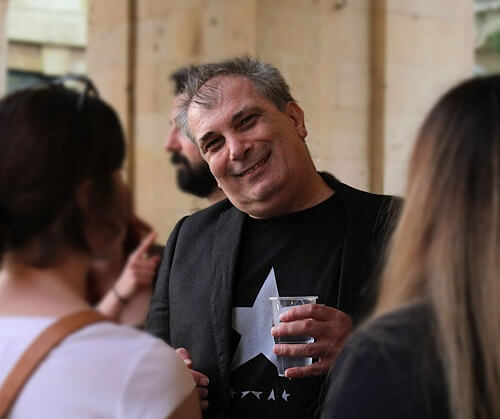
Andreas Giannakoulopoulos is Associate Professor at the department of Audio and Visual Arts of the Ionian University, where he teaches courses related to Internet Communication, New Media and the Web Technologies. He holds a BA (Ptychio) in Economics from the University of Athens (UoA), a BA (Ptychio) in Communication and Media Studies from UoA, a Master of Arts in Communication and Media Studies from UoA, and a Master of Science in Logic from the University of Amsterdam. His doctoral dissertation, approved by the University of Athens, was in the field of web accessibility. The main fields of his academic activities are computer mediated communication, web technologies and e-learning systems as means of effective communication via the web. He has participated in international programmes with a particular interest and experience in dissemination and communication activities. During the last few years he is particularly interested in web applications with academic and artistic content.
Greece
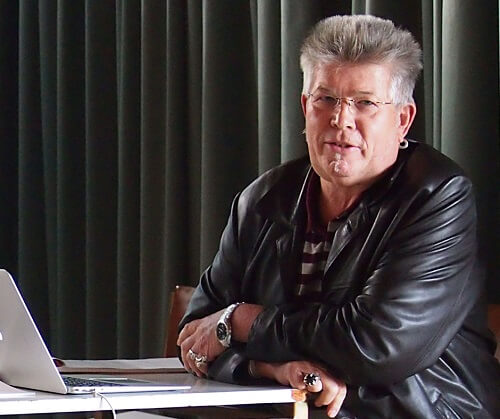
Nigel Llwyd William Helyer is an Australian based Sculptor and Sound Artist with an international reputation for his large-scale sonic installations, environmental sculpture works and new media projects. He is Adjunct Professor at the Department of Media, Music, Communication & Cultural Studies of the Macquarie University. Recent activities include; the development of a ‘Virtual Audio Reality’ system in collaboration with Lake Technology (Sydney) and the ongoing ‘AudioNomad’ research project in location sensitive Environmental Audio at the School of Computer Science and Engineering at the University of New South Wales. He is an honorary faculty member in Architectural Acoustics at the University of Sydney and maintains active research links with the “SymbioticA” bio-technology lab at the University of Western Australia. He has recently been a visiting Professor at Stanford University and an Artist in Residence at the Paul Scherrer Institut in Switzerland as part of the Artists in Labs programme. Nigel is a co-founder and commissioner of the “SoundCulture” organisation; a fellow of the Australia Council for 2002/3, the winner of the Helen Lempriere National Sculpture Award 2002 and the curator of “Sonic-Differences” as part of the Biennale of Electronic Arts Perth 2004.
Australia
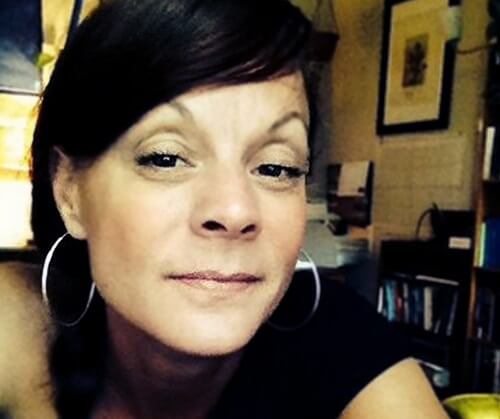
Cosima Herter is an independent writer, and science and production consultant in television and film. Her background is in the History & Philosophy of Science, Technology, and Medicine. She lives in Toronto, Canada with her partner and their geriatric cat.
Canada
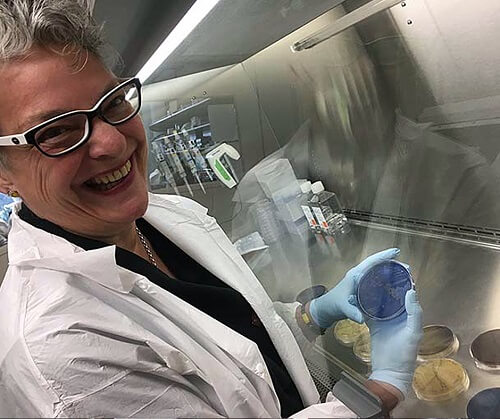
Kathy High is an interdisciplinary artist working with technology, art and biology. She is Professor in Arts, and has a lab at the Center for Biotechnology and Interdisciplinary Studies, Rensselaer Polytechnic Institute, Troy. She collaborates with scientists and artists, and on living systems, empathy, animal sentiment, and the social, political and ethical dilemmas of the biotechnology and surrounding industries. She has received awards including the Guggenheim Foundation, Rockefeller Foundation, and National Endowment for the Arts. Her art works have been shown at documenta 13 (Germany), Guggenheim Museum, Museum of Modern Art, Lincoln Center and Exit Art (NYC), UCLA (Los Angeles), Science Gallery, (Dublin), NGBK, (Berlin), Fesitval Transitio_MX (Mexico), MASS MoCA (North Adams), Para-site Gallery (Hong Kong), and Esther Klein Gallery, Science Center (Philadelphia). She is project coordinator for the urban environmental center, NATURE Lab, with the community media organization The Sanctuary for Independent Media, and is also on the board of directors.
USA
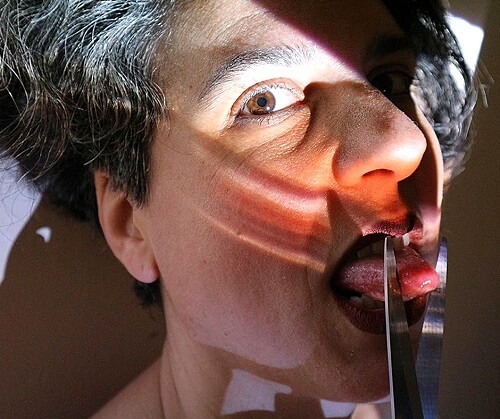
Dalila Honorato, Ph.D, is the starter of the conference "Taboo-Transgression-Transcendence in Art & Science". She is Tenured Assistant Professor in Aesthetics and Visual Semiotics at the Ionian University, Greece. One of the founding members of the Interactive Arts Lab,where she coordinates the Art & Science Research Group, she is also a collaborator at the Center of Philosophy of Sciences - University of Lisbon, and a commissar of "FEMeeting: Women in Art, Science and Technology" launching in 2018 organized by Cultivamos Cultura. Her research focus is on embodiment, monstrosity, the uncanny and the acrobatic balance between phobia and paraphilia.
Photo credits: Dolores Grande
Greece
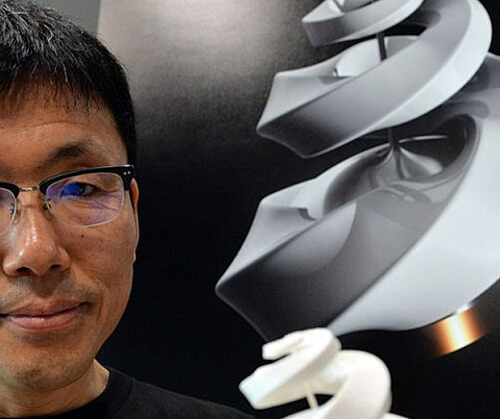
Akihiro Kubota is a professor of Art and Media Course in the Information Design Department, Tama Art University. He earned his doctorate at the University of Tokyo, Faculty of Engineering. He has pioneered a wide range of projects, such as ARTSAT Project (ARTSAT.JP), the world’s first nano art satellite and 3D-printed artwork to be successfully launched into deep space. Such projects traverse disciplines, developing a range of hybrid creations, and incorporate the diverse fields of bio art, natural intelligence, sound performance and the creation of original musical instruments. His team’s ARTSAT1:INVADER won the Award of Distinction of the Hybrid Art of Prix Ars Electronica 2015. He received 66th Minister of Education Award for Fine Arts (Media Arts Division) for the achievement of ARTSAT project.
Japan
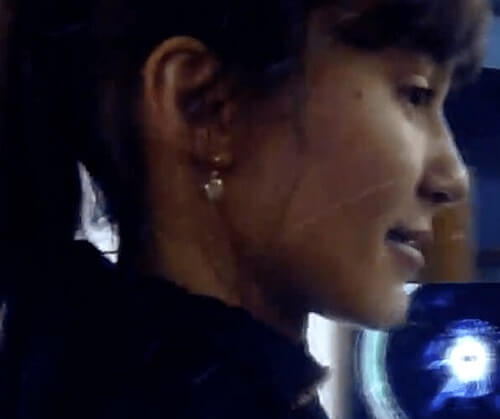
Dr. Cvetana Ivanova is the Founder & President of Art & Science Research Foundation “Re:” | She is a lecturer at University of the Arts, London - Central Saint Martins, in MA Applied Imagination in the Creative Industry. Founder & Manager of Relogia.net. PhD in Art Psychology, where she defended the thesis how can contemporary Art form be used as an instrument for Science with the title ”Neuroaesthetics of Emotion and contemporary Art forms”. Master’s of Arts graduate with experience in creative design, art direction and cross-disciplinary art+sci+tech research and development. Research artist with stage design and fashion design background, evolved in creative director and manager of cross-disciplinary teams. Founder of the Art & Science research foundation “Re:” and currently working on a chain of cross-disciplinary projects with teams of artists and scientist in the quest for the synergy between Art & Science as natural result of their evolution. Collaborating with Sofia University, National Academy of the Art, Bulgarian Academy of Sciences, international NGOs, SME’s and EU education institutions.
Bulgaria
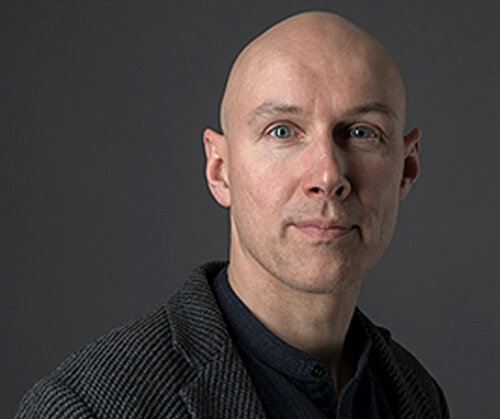
Reiner Maria Matysik is a Berlin based artist and Professor at the University of Art and Design in Halle (Burg Giebichenstein) for Three-dimensional Design/Material Form Object in the area of Artistic Design Fundamentals. He was born in Duisburg in 1967 and studied Free Art at Braunschweig University of Art from 1993 to 1999 and at Ateliers Arnhem. In 2000, he became 'Meisterschüler' (Master Student) of Prof. Raimund Kummer. In 2004, he led the "Institute for Biological Sculpture" artistic development project at Braunschweig University of Art. His works have been shown at numerous institutions such as the Kunsthalle Wilhelmshaven, Gerhard Marcks House in Bremen, the PasquArt Center in Biel, the Moscow Laboratory, the Georg Kolbe Museum in Berlin, the 'Staatliche Kunsthalle' in Baden-Baden, the 'Kunstverein Hannover', ' Martin Gropius Bau 'in Berlin and' Kunsthalle Bern '. He has held stipends from the 'Studienstiftung des Deutschen Volkes (German National Academic Foundation)', the KfW bank and the Berlin Senate. Between 2008 and 2009, Reiner Maria Matysik was an adjunct professor in Sculpture at the 'Fachhochschule Kunst Arnstadt', and also an artistic assistant at the Institute of Architecture-Related Art at the Faculty of Architecture at the Technical University of Braunschweig until 2014.
Germany
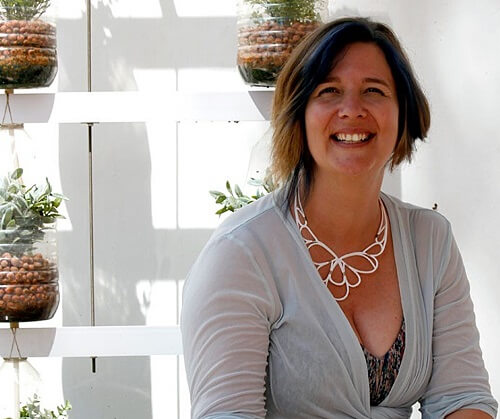
Marta de Menezes is a Portuguese artist with a degree in Fine Arts by the University in Lisbon, a MSt in History of Art and Visual Culture by the University of Oxford, and a PhD candidate at the University of Leiden. She has been exploring the intersection between Art and Biology, working in research laboratories demonstrating that new biological technologies can be used as new art medium. In 1999 de Menezes created her first biological artwork (Nature?) by modifying the wing patterns of live butterflies. Since then, she has used diverse biological techniques including functional MRI of the brain to create portraits where the mind can be visualised (Functional Portraits, 2002); fluorescent DNA probes to create micro-sculptures in human cell nuclei (nucleArt, 2002); sculptures made of proteins (Proteic Portrait, 2002-2007), DNA (Innercloud, 2003; The Family, 2004) or incorporating live neurons (Tree of Knowledge, 2005) or bacteria (Decon, 2007). Her work has been presented internationally in exhibitions, articles and lectures. She is currently the artistic director of Ectopia, an experimental art laboratory in Lisbon, and Director of Cultivamos Cultura in the South of Portugal.
Portugal
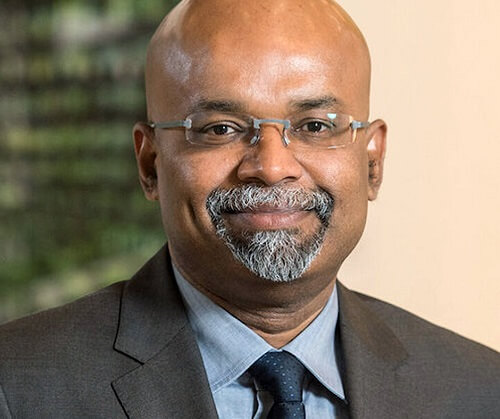
Gunalan Nadarajan, an art theorist and curator working at the intersections of art, science and technology, is Dean and Professor at the Penny W. Stamps School of Art and Design at the University of Michigan. He is active in the development of media arts internationally and has previously served on the Board of Directors of the Inter Society for Electronic Art, is on the Advisory Boards of the Database of Virtual Art (Austria), Cellsbutton Festival (Indonesia), the New Media Caucus and was an advisor on creative programs of digital culture to the UNESCO and the Smithsonian Institution. Since 2014, he serves on the International Advisory Board of the ArtScience Museum in Singapore. He co-founded and continues to work on a National Science Foundation funded Network for Science Engineering, Art and Design to develop and support a national network for collaborative research, education and creative practice between sciences, engineering, arts and design. He also served on the National Academies of Sciences, Engineering and Medicine (USA) committee and co-authored the report, Branches from the Same Tree: The Integration of the Humanities and Arts in Sciences, Engineering and Medicine in Higher Education.
USA
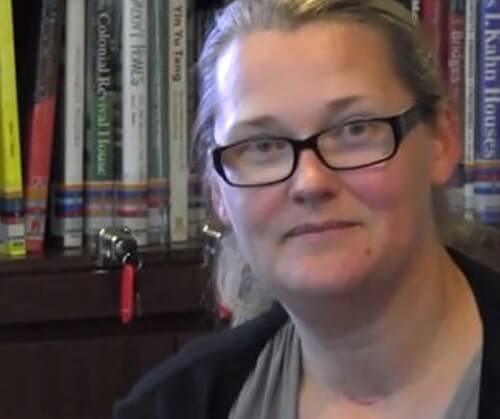
Being a cultural theorist writing on contemporary art, new technologies and new media, with a focus on biotechnology and artificial life, Ingeborg Reichle is full professor of Media Theory and chair of the Department of Media Theory. She studied art history, sociology, and archaeology at the University of Hamburg, and completed an MA (1998) and PhD (2004) in art history at Hamburg University and Humboldt University Berlin where she also gained her habilitation in 2013. She was FONTE professor at Humboldt University Berlin. In 2014 she was Visiting Research Fellow for two terms at the Instituto de Investigaciones Estéticas of the Universidad National Autonoma Mexico (UNAM) in Mexico City. From 2005 to 2011 she conducted research at the Berlin-Brandenburg Academy of Sciences and Humanities on image science and visual culture in the interdisciplinary working groups “The World as Image” (Die Welt als Bild) and “Image Cultures” (Bildkulturen).
Austria
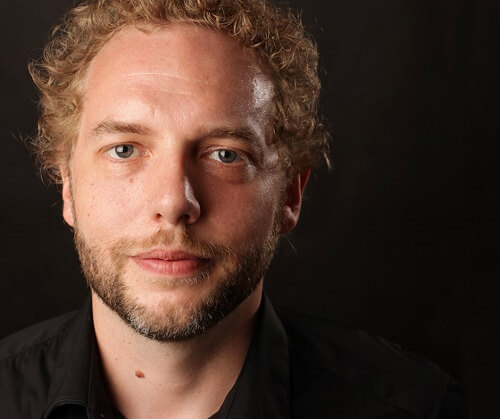
Günter Seyfried is an Austrian artist, who lives and works in Vienna. He has a background in medicine and psychology, which he studied at the University of Vienna, and has strong links to the fine arts, digital art, and media art, having graduated from the University of Applied Arts Vienna (Department of Digital Art). He is teaching at the New Design University in St. Pölten, Department of Manual and Material Culture. He combines science and art education and develops projects as an independent artist, participating in national and international exhibitions and publications. He is a founding member of pavillon_35 — Gesellschaft für wissenschaftsbasierte Kunst.
Austria
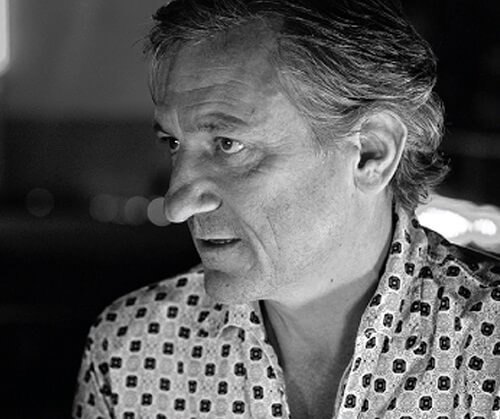
Klaus Spiess is an endocrinologist, psychosomaticist, medical anthropologist and artist who now as an associate professor heads the art and science program at the Medical University of Vienna. His performances and installations (most together with Lucie Strecker) address biopolitical issues in biology and medicine and have been shown at numerous performance and exhibition spaces (Budascoop Kortrijk, Tanzquartier and Belvedere/21er Haus Vienna, Haus der Kulturen der Welt, Berlin, the BEALL Center for Art + Technology, Irvine, the Onassis Cultural Center Athens, the Bemis Center of Contemporary Arts Omaha and the OK Center, Linz, where he was awarded an Honorary Mention at the Prix Ars Electronica. He has published numerous articles on his transdisciplinary work (Performance Research, Kunstforum International, Springerin, The Lancet and Leonardo, among others).
Austria
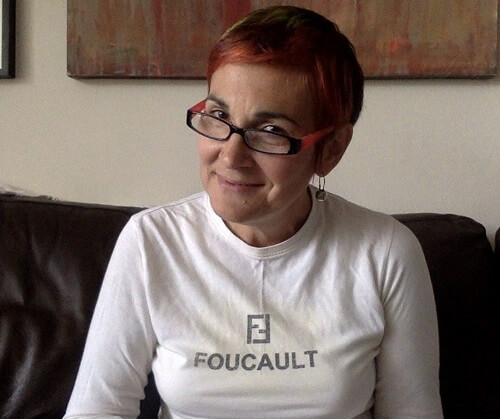
Dr. Dolores Steinman was trained as a Paediatrician and, upon relocating to Canada, obtained her PhD in Cell Biology. Currently she is a Research Associate in the Department of Mechanical Engineering at the University of Toronto and a volunteer Docent at the Art Gallery of Ontario. In her research she observes the rapport and the connection between medical imagery and its non-scientific counterparts. Her pursuit is driven by her keen interest in placing the ever increasingly technology-based medical research in the larger context of the humanities.
Canada
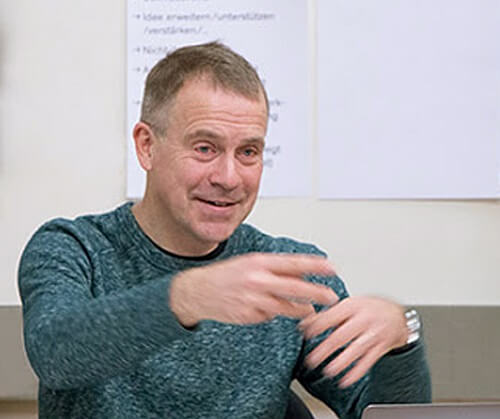
Jan Svenungsson is perhaps best known for his chimneys. It started with photographs portraying chimneys, which then became real, brick monoliths, one always a meter higher than the other. But Svenungsson will call himself neither photographer nor sculptor, but simply an idea based artist. For many years, Svenungsson has devoted himself to man's vain attempts to perfectly reproduce and thus control our environment, often with maps as a recurring motif. Jan Svenungsson is one of Sweden's most well renowned artists. He trained at the Royal Institute of Art in Stockholm in the late 1980s and has since exhibited worldwide. Today he lives in Berlin and Vienna, where he is professor at the University of Applied Arts.
Austria
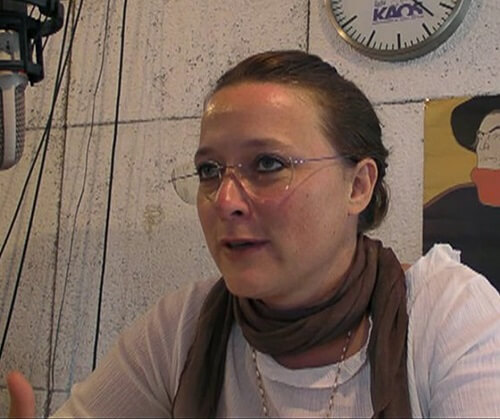
Polona Tratnik holds PhD in philosophy and theory of visual culture, MA and BA in arts. She is Dean of Faculty for Slovene and International Studies at New University, Ljubljana. She is full professor for philosophy and art and teaches at several universities, such as Faculty of Arts and Academy of Fine Arts and Design of the University of Ljubljana, at the Faculty of Education of the University of Maribor and at the Faculty for Design of the University of Primorska. She is scientific councilor and has taken part in several research projects; she is the project leader of Social Functions of Fairy Tales and used to be the principal investigator of the research program Investigations of Cultural Formations. In 2012 she was a Fulbright Visiting Scholar, as well as a Guest Professor at the University of California Santa Cruz. She was a Guest Professor also at the Capital Normal University Bejing (China), at the Faculty for Art and Design Helsinki TAIK (Finland), and at the Universidad Nacional Autónoma de México (Mexico City). She is president of the Slovenian Society of Aesthetics (since 2011) and an Executive Committee Member of the International Association of Aesthetics. Polona Tratnik is a pioneer bio artist exhibiting worldwide at shows such as Ars Electronica festival and BEAP festival in Perth, a curator and director Break 2.3 multimedia festival New Species.
Slovenia
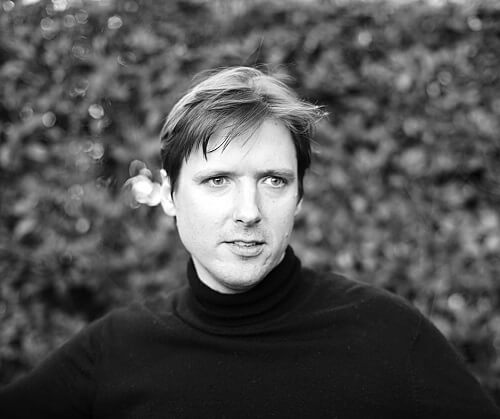
Georg Tremmel is an Austrian artist, living and working in Tokyo. He studied Biology, Informatics and Media Art with Peter Weibel and Karel Dudesek in Vienna and continued his studies at the Royal College of Art in London with Anthony Dunne and Fiona Raby. Since 2001 intertwining biological, cultural, ethical and societal codes, creating objects, installations and situations for contestable discussions. With Shiho Fukuhara, he founded BCL - an Artistic Research Framework for critically exploring Art & Biotech. BCL's body of works includes Biopresence, the Common Flowers Series, and Ghost in the Cell. He started his first bio-startup together with Shiho in 2004, after receiving startup funding from the UK's National Endowment for Science Technology and the Arts (NESTA). Georg is currently a Project Researcher in the Laboratory for DNA Information Analysis at the University of Tokyo's Institute for Medical Science, working on Information Visualisation of Cancer Genomic Data. He is also a Visiting Researcher at the metaPhorest Art & Science group at Hideo Iwasaki's Lab at Waseda University. Georg is the co-founder of the BioClub in Shibuya, Tokyo's first Open Biolab & Biohackerspace.
Japan
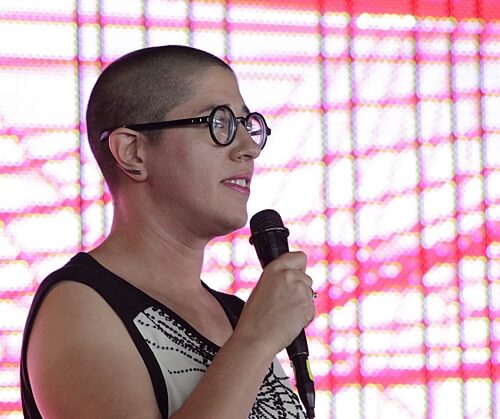
María Antonia González Valerio holds PhD in Philosophy from the National Autonomous University of Mexico (UNAM) with postdoctoral studies in the area of aesthetics. Full-time professor of the Faculty of Philosophy and Literature. She works within the research line of ontology-aesthetics and the interdisciplinary line of arts, sciences and humanities. Head of the research group Arte+Ciencia (Art+Science) which gathers artists, scholars and scientists in an interdisciplinary work that produces education at an under and postgraduate level, specialized theoretical research, artistic productions and exhibitions, www.artemasciencia.org Leader of the research project “Medium and Species: Ecology and Evolution within Philosophy of Nature” Author of the books: Cabe los límites. Escritos sobre filosofía natural desde la ontología estética (México: UNAM/Herder, 2016), Un tratado de ficción (México: Herder, 2010) and El arte develado (México: Herder, 2005). Coordinator of the artistic collective «BIOS Ex Machina: Workshop for the fabrication of the human and the non-human» which develops projects of transgenic and biotechnological art. She has also worked as curator of exhibitions on art and science.
México
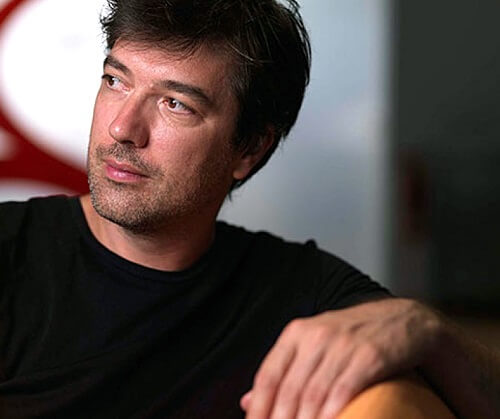
Virgil Widrich has worked on numerous films and multimedia productions. His first feature film for the cinema, "Heller als der Mond" received several awards, and his short film "Copy Shop" won 37 international awards and was nominated for an Academy Award. In 2001, he founded the multimedia company checkpointmedia. From 2007 to 2010 he was university professor of "Digitale Kunst" at the University of the Applied Arts in Vienna, since 2009 he has been leading the "Art and Science” at the same University.
Austria
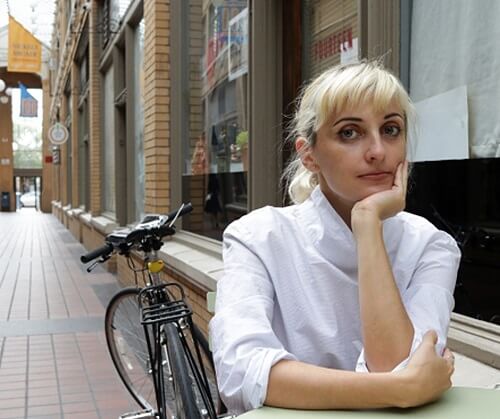
Pinar Yoldas is an infradisciplinary designer/artist/researcher currently based in Ann Arbor, Michigan. Her work develops within biological sciences and digital technologies through architectural installations, kinetic sculpture, sound, video and drawing with a focus on post-humanism, eco-nihilism, anthropocene and feminist technoscience. Her solo shows include The Warm, the Cool and the Cat at Roda Sten Konsthall (2016), Polyteknikum Museum Moscow (2015),An Ecosystem of Excess, Ernst Schering Project Space among many. Her group shows include ThingWorld, NAMOC National Art Museum of Beijing (2014); Transmediale Festival, Berlin (2014), ExoEvolution at ZKM (2015),14th Istanbul Biennial (2015) ,Taiwan National Museum of Fine Arts(2016). She holds a Ph.D. from Duke University where she was affiliated with Duke Institute of Brain Sciences and Media Arts and Sciences. She holds a Bachelors of Architecture from Middle East Technical University, a Master of Arts from Bilgi University, a Master of Science from Istanbul Technical University and a Master of Fine Arts from University of California, Los Angeles where she worked at the Art|Sci Center and the UCLA Game lab. Her book An Ecosystem of Excess was published by ArgoBooks in 2014. Pinar is a 2015 John Simon Guggenheim Fellow in the Fine Arts and a 2016 FEAT Future Emerging Arts and Technologies Award recipient.
USA
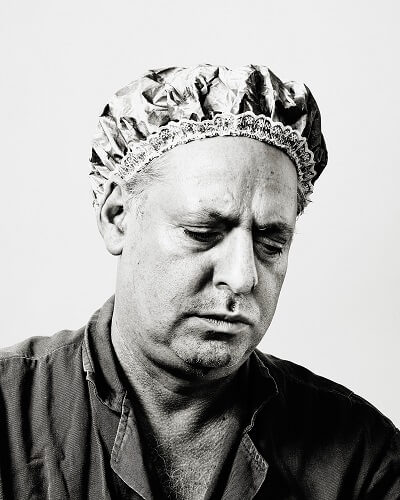
Adam Zaretsky, Ph.D. teaches video, performance, video compositing, new media, art and technology, web/interactivity, digital audio, digital imaging, and contemporary theory. A former researcher at the MIT department of biology, for the past decade Zaretsky has been teaching an experimental bioart class called VivoArts at: San Francisco State University (SFSU), SymbioticA (UWA), Rensselaer Polytechnic Institute (RPI), University of Leiden’s The Arts and Genomic Centre (TAGC), and with the Waag Society. His art practice focuses on an array of legal, ethical, social and libidinal implications of biotechnological materials and methods with a focus on transgenic humans. Zaretsky stages lively, hands-on bioart production labs.
USA
Steering Committee
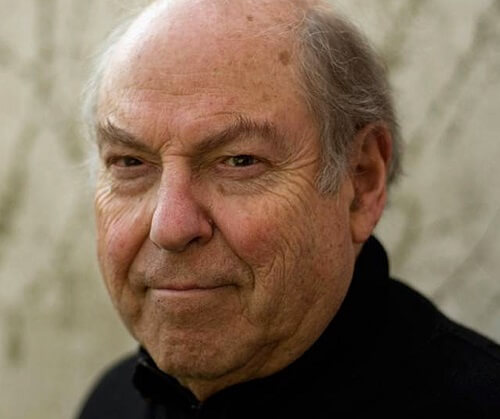
Roy Ascott is an artist and theorist, who has focused on the theoretical and practical application of cybernetics and telematics in art. He coined the concept of Technoetics; a field that brings together art, science, technology and consciousness. He has exhibited and taught since the early 1960s. Roy Ascott, is currently DeTao Master of Technoetic Arts in Shanghai, and president of the Planetary Collegium, Plymouth University, UK. He has been President of Ontario College of Art, Toronto; Vice- President of San Francisco Art Institute, California; Professor Communications Theory at University of Applied Arts Vienna; Head of Fine Art, Minneapolis College of Art, Visiting Professor at UCLA, and creator of the ‘Groundcourse’ at Ealing School of Art in London. He has an honorary Doctorate, Ionian University, and is the recipient of the first Ars Electronica Golden Nica Award for Visionary Pioneers of Media Art (2014). His work is in the permanent collections of the Tate Gallery, and British Arts Council.
He has shown in the Biennales of Venice, and Shanghai, and in major shows in Europe, Asia and South America. His research is widely presented in journals and conferences (US, Europe, Asia, Australia). He is the Founding Editor of Technoetic Arts (Intellect) and an Honorary Editor of Leonardo (MIT Press), and convenes the annual international Consciousness Reframed conference.
UK
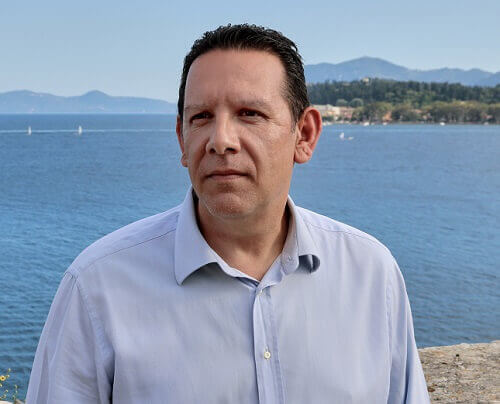
Andreas Floros was born in Drama, Greece in 1973. In 1996 he received his engineering degree from the department of electrical and computer engineering, University of Patras, and in 2001 his Ph.D. degree from the same department. His research was mainly focused on digital audio signal processing and conversion techniques for all-digital power amplification methods. He was also involved in research in the area of acoustics. In 2001, he joined the semiconductors industry, where he worked in projects in the area of digital audio delivery over PANs and WLANs, Quality-of-Service, mesh networking, wireless VoIP technologies and lately with audio encoding and compression implementations in embedded processors. During 2003 - 2005 he was a member of a number of IEEE Tasks Groups (such as the 802.11e, .11k and .11s) with voting rights. For a period of three years (2005 - 2008), he was an adjunct professor at the department of informatics, Ionian University. During this period of time he also taught at the postgraduate (MSc) degree "Arts and Technologies of Sound" organized by the dept. of Music Studies, Ionian University. On January 2008, he was appointed in the position of Assistant Professor at the department of Audiovisual Arts, Ionian University. Today, he serves as Professor of Audio Technology and Electroacoustics and as the Rector of the Ionian University.
Greece

Dalila Honorato, Ph.D, is the starter of the conference "Taboo-Transgression-Transcendence in Art & Science". She is Tenured Assistant Professor in Aesthetics and Visual Semiotics at the Ionian University, Greece. One of the founding members of the Interactive Arts Lab,where she coordinates the Art & Science Research Group, she is also a collaborator at the Center of Philosophy of Sciences - University of Lisbon, and a commissar of "FEMeeting: Women in Art, Science and Technology" launching in 2018 organized by Cultivamos Cultura. Her research focus is on embodiment, monstrosity, the uncanny and the acrobatic balance between phobia and paraphilia.
Photo credits: Dolores Grande
Greece

Gunalan Nadarajan, an art theorist and curator working at the intersections of art, science and technology, is Dean and Professor at the Penny W. Stamps School of Art and Design at the University of Michigan. He is active in the development of media arts internationally and has previously served on the Board of Directors of the Inter Society for Electronic Art, is on the Advisory Boards of the Database of Virtual Art (Austria), Cellsbutton Festival (Indonesia), the New Media Caucus and was an advisor on creative programs of digital culture to the UNESCO and the Smithsonian Institution. Since 2014, he serves on the International Advisory Board of the ArtScience Museum in Singapore. He co-founded and continues to work on a National Science Foundation funded Network for Science Engineering, Art and Design to develop and support a national network for collaborative research, education and creative practice between sciences, engineering, arts and design. He also served on the National Academies of Sciences, Engineering and Medicine (USA) committee and co-authored the report, Branches from the Same Tree: The Integration of the Humanities and Arts in Sciences, Engineering and Medicine in Higher Education.
USA
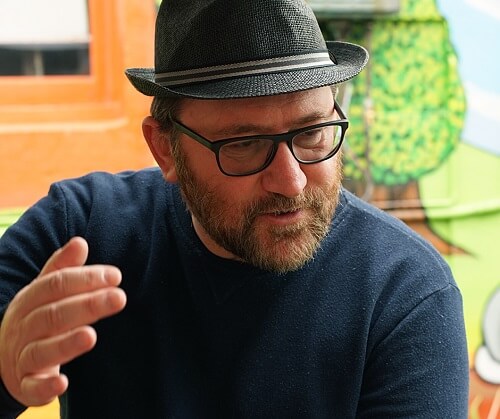
Dr Melentie Pandilovski is a Phenomenologist, Gallery Director, Curator, Art Historian. He has curated more than 200 exhibitions and organized numerous symposia, conferences, and workshops in Europe, Australia, Canada, the USA, such as: “Contestable Bodies” by STELARC (2018), the "inaugural International Limestone Coast Video Art Festival" (2018), "The Rise of Bio-Society" (2017), “SEAFair” (Skopje Electronic Art Fair 1997 – 2011); "Age of Catastrophe" (2015), "Toxicity" (2013-14), “Marshall McLuhan & Vilém Flusser Communication & Aesthetics Theories Revisited” (2012); “Biotech Art – Revisited” (2009), etc. His theoretical research deals with examining links between art, culture, technology, individual identity, and consciousness. Melentie has worked on numerous projects with the “Syndicate” – international network. His artistic projects include the Internet project “Welcome Back to the Empire” (1996-7, and 2011), the solo exhibition “TV Experiment” in Skopje, Macedonia, in 1987, and a project with-in “Tik- Tak –Tok”, an international inter-disciplinary collaboration consisting of two exhibitions of artists’ clocks and time machines, in Dundee (Scotland) and Skopje (Republic of Macedonia) in 2000 and 2002.
Australia
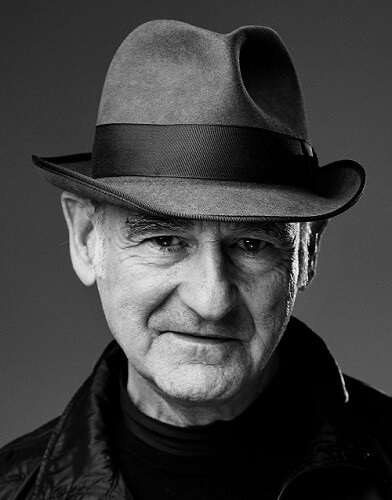
Stelarc is an Australian Performance Artist. His projects and performances explore alternate anatomical architectures, interrogating issues of embodiment, agency, identity and the post-human. Between 1973-1975 he made 3 films of the inside of his body. Between 1976-1988 he completed 27 body suspensions with insertions into his skin. He has performed with a Third Hand, a Stomach Sculpture and Exoskeleton, a 6-legged walking robot. Fractal Flesh, Ping Body and Parasite are internet performances that explore remote and involuntary choreography via a muscle stimulation system. He is surgically constructing and stem-cell growing an ear on his arm that will be electronically augmented and internet enabled. In 1996 he was made an Honorary Professor of Art and Robotics at Carnegie Mellon University, Pittsburgh and in 2002 was awarded an Honorary Doctor of Laws by Monash University, Melbourne. In 2010 he was awarded the Ars Electronica Hybrid Arts Prize. In 2015 he received the Australia Council’s Emerging and Experimental Arts Award. In 2016 he was awarded an Honorary Doctorate from the Ionian University, Corfu. From 2013-2018, Stelarc was a Distinguished Research Fellow, Curtin University, Perth. His artwork is represented by Scott Livesey Galleries, Melbourne. www.stelarc.org
Photo credits: Peter Cheng.
Australia

Polona Tratnik holds PhD in philosophy and theory of visual culture, MA and BA in arts. She is Dean of Faculty for Slovene and International Studies at New University, Ljubljana. She is full professor for philosophy and art and teaches at several universities, such as Faculty of Arts and Academy of Fine Arts and Design of the University of Ljubljana, at the Faculty of Education of the University of Maribor and at the Faculty for Design of the University of Primorska. She is scientific councilor and has taken part in several research projects; she is the project leader of Social Functions of Fairy Tales and used to be the principal investigator of the research program Investigations of Cultural Formations. In 2012 she was a Fulbright Visiting Scholar, as well as a Guest Professor at the University of California Santa Cruz. She was a Guest Professor also at the Capital Normal University Bejing (China), at the Faculty for Art and Design Helsinki TAIK (Finland), and at the Universidad Nacional Autónoma de México (Mexico City). She is president of the Slovenian Society of Aesthetics (since 2011) and an Executive Committee Member of the International Association of Aesthetics. Polona Tratnik is a pioneer bio artist exhibiting worldwide at shows such as Ars Electronica festival and BEAP festival in Perth, a curator and director Break 2.3 multimedia festival New Species.
Slovenia

Adam Zaretsky, Ph.D. teaches video, performance, video compositing, new media, art and technology, web/interactivity, digital audio, digital imaging, and contemporary theory. A former researcher at the MIT department of biology, for the past decade Zaretsky has been teaching an experimental bioart class called VivoArts at: San Francisco State University (SFSU), SymbioticA (UWA), Rensselaer Polytechnic Institute (RPI), University of Leiden’s The Arts and Genomic Centre (TAGC), and with the Waag Society. His art practice focuses on an array of legal, ethical, social and libidinal implications of biotechnological materials and methods with a focus on transgenic humans. Zaretsky stages lively, hands-on bioart production labs.
USA
Organizing Committee

Dalila Honorato, Ph.D, is the starter of the conference "Taboo-Transgression-Transcendence in Art & Science". She is Tenured Assistant Professor in Aesthetics and Visual Semiotics at the Ionian University, Greece. One of the founding members of the Interactive Arts Lab,where she coordinates the Art & Science Research Group, she is also a collaborator at the Center of Philosophy of Sciences - University of Lisbon, and a commissar of "FEMeeting: Women in Art, Science and Technology" launching in 2018 organized by Cultivamos Cultura. Her research focus is on embodiment, monstrosity, the uncanny and the acrobatic balance between phobia and paraphilia.
Photo credits: Dolores Grande
Greece

Being a cultural theorist writing on contemporary art, new technologies and new media, with a focus on biotechnology and artificial life, Ingeborg Reichle is full professor of Media Theory and chair of the Department of Media Theory. She studied art history, sociology, and archaeology at the University of Hamburg, and completed an MA (1998) and PhD (2004) in art history at Hamburg University and Humboldt University Berlin where she also gained her habilitation in 2013. She was FONTE professor at Humboldt University Berlin. In 2014 she was Visiting Research Fellow for two terms at the Instituto de Investigaciones Estéticas of the Universidad National Autonoma Mexico (UNAM) in Mexico City. From 2005 to 2011 she conducted research at the Berlin-Brandenburg Academy of Sciences and Humanities on image science and visual culture in the interdisciplinary working groups “The World as Image” (Die Welt als Bild) and “Image Cultures” (Bildkulturen).
Austria

María Antonia González Valerio holds PhD in Philosophy from the National Autonomous University of Mexico (UNAM) with postdoctoral studies in the area of aesthetics. Full-time professor of the Faculty of Philosophy and Literature. She works within the research line of ontology-aesthetics and the interdisciplinary line of arts, sciences and humanities. Head of the research group Arte+Ciencia (Art+Science) which gathers artists, scholars and scientists in an interdisciplinary work that produces education at an under and postgraduate level, specialized theoretical research, artistic productions and exhibitions, www.artemasciencia.org Leader of the research project “Medium and Species: Ecology and Evolution within Philosophy of Nature” Author of the books: Cabe los límites. Escritos sobre filosofía natural desde la ontología estética (México: UNAM/Herder, 2016), Un tratado de ficción (México: Herder, 2010) and El arte develado (México: Herder, 2005). Coordinator of the artistic collective «BIOS Ex Machina: Workshop for the fabrication of the human and the non-human» which develops projects of transgenic and biotechnological art. She has also worked as curator of exhibitions on art and science.
México
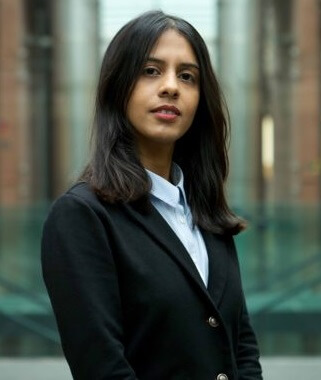
Zahra Mirza is a lifelong learner from Pakistan, now living in Austria.
She has an educational background in Sculpture and her professional experience extends into public service content and art direction for print and television media. She is also former director of RetroArts; artists platform in Pakistan.
She has conducted design seminar and fiber arts studio courses at Beaconhouse National University, Lahore and sculpture workshops for Community College, Kunsthalle Wien and Academy of Fine Arts, Vienna.
Currently, she is a student at the department of Cross Disciplinary Strategies and works as a tutor at the department of Media Theory at University of Applied Arts, Vienna.
Austria
Communication Team

Dalila Honorato, Ph.D, is the starter of the conference "Taboo-Transgression-Transcendence in Art & Science". She is Tenured Assistant Professor in Aesthetics and Visual Semiotics at the Ionian University, Greece. One of the founding members of the Interactive Arts Lab,where she coordinates the Art & Science Research Group, she is also a collaborator at the Center of Philosophy of Sciences - University of Lisbon, and a commissar of "FEMeeting: Women in Art, Science and Technology" launching in 2018 organized by Cultivamos Cultura. Her research focus is on embodiment, monstrosity, the uncanny and the acrobatic balance between phobia and paraphilia.
Photo credits: Dolores Grande
Greece

Andreas Giannakoulopoulos is Associate Professor at the department of Audio and Visual Arts of the Ionian University, where he teaches courses related to Internet Communication, New Media and the Web Technologies. He holds a BA (Ptychio) in Economics from the University of Athens (UoA), a BA (Ptychio) in Communication and Media Studies from UoA, a Master of Arts in Communication and Media Studies from UoA, and a Master of Science in Logic from the University of Amsterdam. His doctoral dissertation, approved by the University of Athens, was in the field of web accessibility. The main fields of his academic activities are computer mediated communication, web technologies and e-learning systems as means of effective communication via the web. He has participated in international programmes with a particular interest and experience in dissemination and communication activities. During the last few years he is particularly interested in web applications with academic and artistic content.
Greece
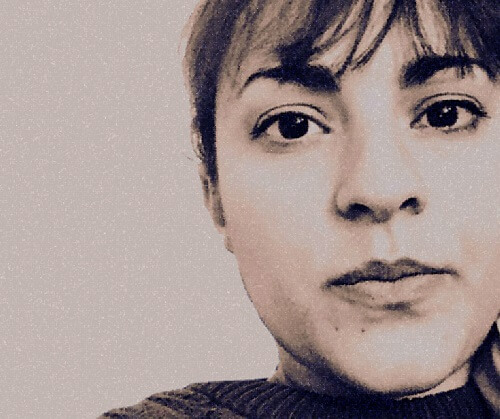
Ioustini Eloul is a PhD student at the Department of Audio and Visual Arts of the Ionian University. Her artistic interests are related mostly to Video Art and Electroacoustic Music while her research focus is on the interdisciplinary field of Neurophenomenology and audiovisual perception of space in Art.
Greece
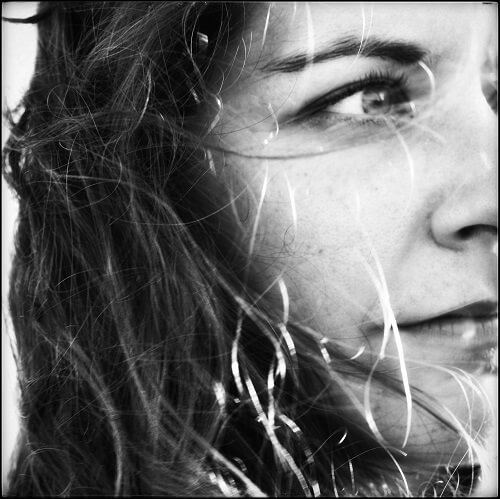
Graduate of the Department of Audio & Visual Arts of the Ionian University, Ioanna Logaki, MA, is responsible for the creation of all visual concepts related to the conference series identity and publications: logo, banners, covers, book of abstracts, program and proceedings.
Greece
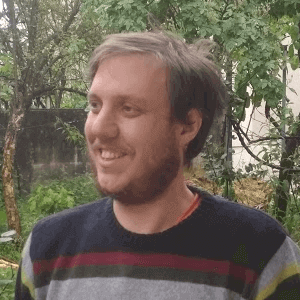
Minas Pergantis is a graduate of the Electrical and Computer Engineering Department of the Polytechnic School of the University of Patras. He has multiple years of work experience in the private sector, where he has worked initially in Customer Technical Support and Service and later as an Internet Application Programmer and Website Developer. Since December 2019 he is a Doctoral Canditate of the Audiovisual Arts Department of the Ionian University.
Greece
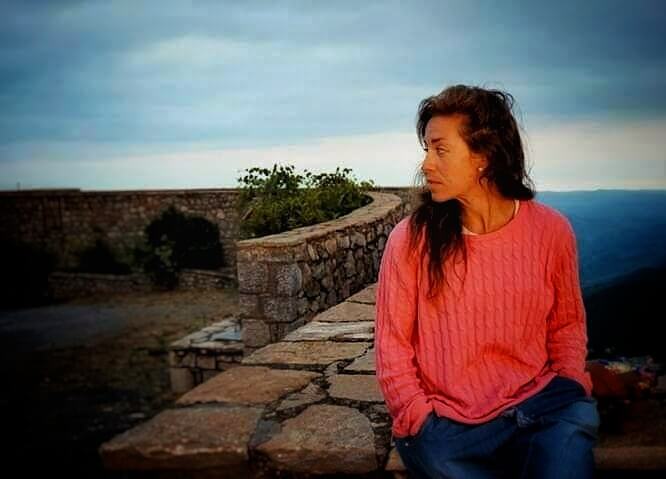
Researcher who collaborates with the Laboratory of New Technologies of the Department of Communication and Media Studies of the National and Kapodistrian University of Athens, Greece.
She studied Political Science and History (Department of Political Science and History, Panteion University, Greece) and she holds an MSc in Crime Science, Jill Dando Institute of Crime Science, University College of London [UCL].
In recent years, she has been working for MEDIA42 (Communication and Digital Media of Eastern Mediterranean P.C.) as a Communication Manager.
Greece

Hoçâ Cové-Mbede is a writer, graphismæ designer and cultural/viral vector, their work is www.-avatar-based and mainly fuelled by Silicon Valley criticism, surveillance aesthetics, global warm-inc, word-matter and sound speculation.
Website: tecno-grafias.com
Work: vimeo.com/covembede
Instagram: @covembede
Bandcamp: hocadossilfuel.bandcamp.com/
Mexico
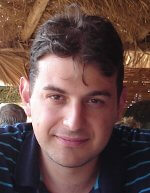
Greece
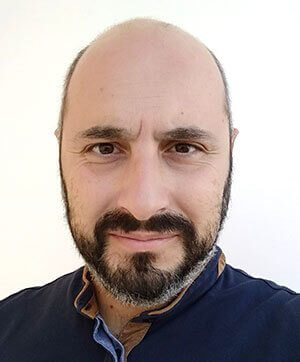
Aristeidis (Aris) Lamprogeorgos was born in Trikala of Thessaly, Greece. He studied Electrical and Computer Engineering at the University of Patras but the arts and especially painting and graphic design were always a big part of his life and professional career. He is now seeking to combine his passion for technology and the arts as a PhD candidate at the Department of Audio and Visual Arts of the Ionian University through his research on the aesthetics of the digital world in website design.
Greece
Ionian University
Secretariat - Conference TTT Webteam
Tsirigoti Square 7, 49100 Corfu
Ionian Islands Region, Greece
av-ttt@ionio.gr





